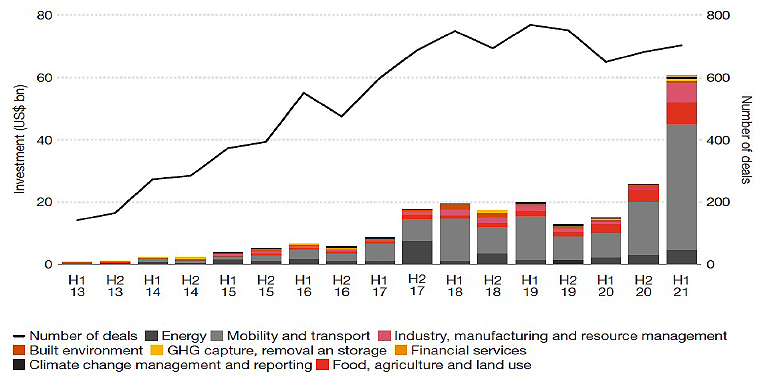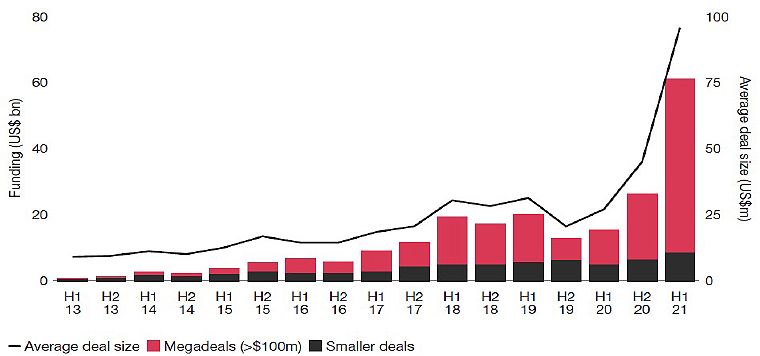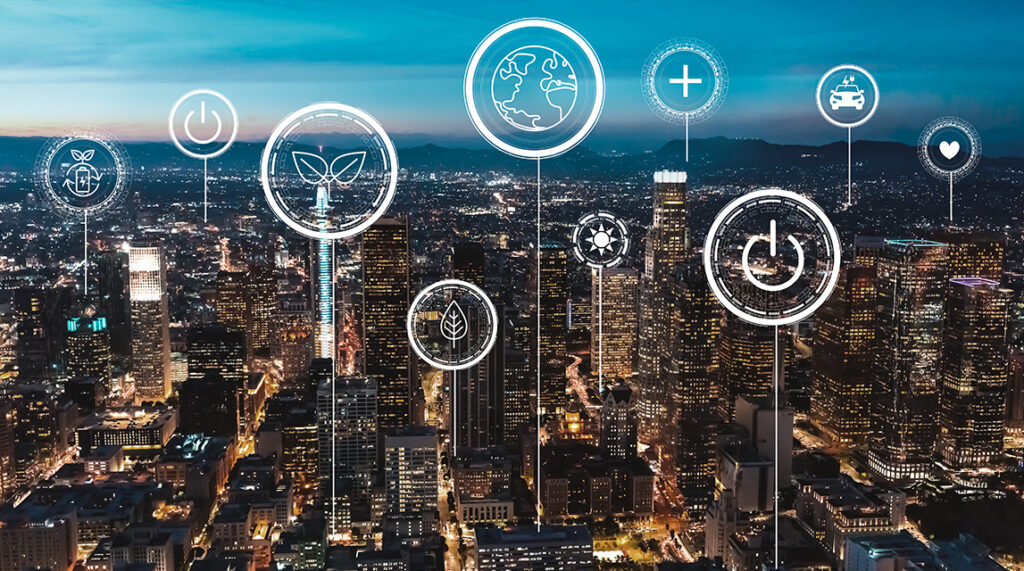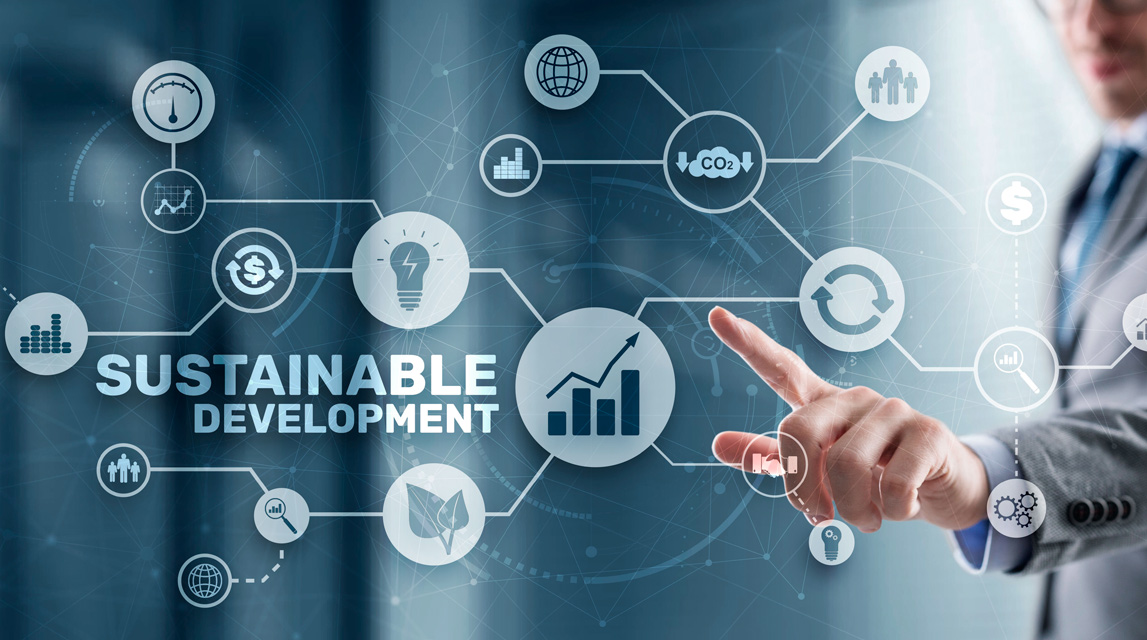Climate tech can be defined as technologies that are explicitly focused on reducing GHG emissions, or addressing the impacts of global warming. In the last times, the level of climate tech start-ups has been increasing not only in number of deals but also in deal size, as you can see in the below charts.
Investment into climate tech starts-up and number of deals

Source: PwC State of Climate Tech 2021, analysis of Dealroom data
Climate tech starts-up funding by deal size

Climate tech is a huge business opportunity that I strongly encourage you to explore. Whether the proposal is to mitigate or remove emissions, or just to better understand the climate impact, I am positive it will provide a positive business case.
Yet, if you want to become a true Green CFO you should not only consider climate tech deals but have a wider digital green mindset. Let me share with you some examples and ideas:
- Internet of Things (IoT): Specially interested for farming companies and, in general, agricultural businesses. The idea is using IoT to collect data such temperature, humidity, wind speed, pest infestation, etc. This data can be then use to automate farming techniques and take better, greener decisions.
- 3D Printing: Imagine avoiding long lasting overseas transportation and replacing some of your regular supply orders by printing out the materials you need. Most likely this approach will require 3D printing hubs in major cities, but sooner or later this structure will be available.
- Machine Learning (ML): The algorithms can be used to optimize the production of a manufacturing site, not only from the output point of view, but also from the perspective of inputs, especially energy consumption.
- Blockchain: This technology, popularized since the creation of the cryptocurrency bitcoin, can be also used to provide traceability details of perishable goods. In the short future selling a sustainable product will be literally demonstrable.
- Artificial Intelligence (AI): Similarly to ML, AI algorithms can be utilized in many applications, even at big scale such improving car mobility to get into cities, meaning an optimized traffic that eventually cause less emissions.
- Wearables: Devices focused in health data can be connected to your personal doctor or even to emergency services. This can be not only a business opportunity for telemedicine companies but also a benefit for both patients and hospitals.










